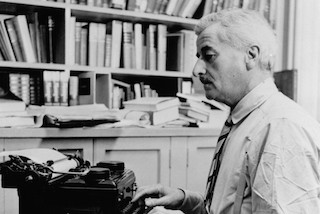Foreword by Tom Engelhardt
Here, in the tradition of Barbara Kingsolver's national bestseller Small Wonder, are reflections on the meaning of America in a time of great crisis by a writer uniquely situated to offer us a perspective that is both familiar and constantly surprising. "Let me tell you, America, of the hopes I had for you," Ariel Dorfman writes after the fall of the Twin Towers, remembering back to an earlier September 11 in 1973, when he was on the staff of Salvador Allende, then president of Chile, the day he was removed from office and murdered in a coup in which the U.S. government was complicit. "Beware the plague of victimhood, America … Nothing is more dangerous than a giant who is afraid."
Included in Other Septembers, Many Americas are major essays about the America south of the border, exploring the ambiguous relationship between power and literature and touching on topics as diverse as bilingualism, barbarians, and video games. In the essay "A Different Drum," Dorfman asks, "Isn't it time, as war approaches yet again, to tell each other stories of peace over and over again?" Over and over in these jewel-like essays, his best shorter work of the last quarter-century, Dorfman weaves together sentiment and politics with his sense of the larger historical questions, reminding Americans of our unique role in the world, so different from the one put forward by the current administration: the power to resist and to imagine.
Does America Deserve to Survive?
Does America deserve to survive?
That's the question William Faulkner asked himself after the 1955 murder of Emmett Till, and that's the question Ariel Dorfman has found himself wondering in 2016, during his pilgrimage to Faulkner's hometown of Oxford, Mississippi.
So much and so little has changed, it seems to Dorfman, who pondered what Faulkner might have made of todays's America in a recent Atlantic essay.
For one thing, Dorfman sees Donald Trump as a hypertrophied version of recurring Faulkner villain Flem Snopes, the mountebank-in-chief of Frenchman's Bend, Mississippi, a fictional Faulkner town.

Of course there are many Americas, as Ariel Dorfman knows well, and likely there are some vantage points the cagey southern author and Dorfman would not share. But Dorfman understands well that Faulkner wouldn't have simply thumbed his nose at today's Trump supporters, as do so many 2016 intellectuals. "Faulkner would have understood," Dorfman writes, "the roots of the present disaffection of those people he cared for so much and the fear from which that disaffection derives, the feeling that they are trapped in a historical tide not of their making, their American dream gone berserk."
No one likes it when their dream convulses and dies. It may be, then, that if America is to survive, we'll have to invent another American dream, or another America. And the imaginative work of Ariel Dorfman is a great start.














